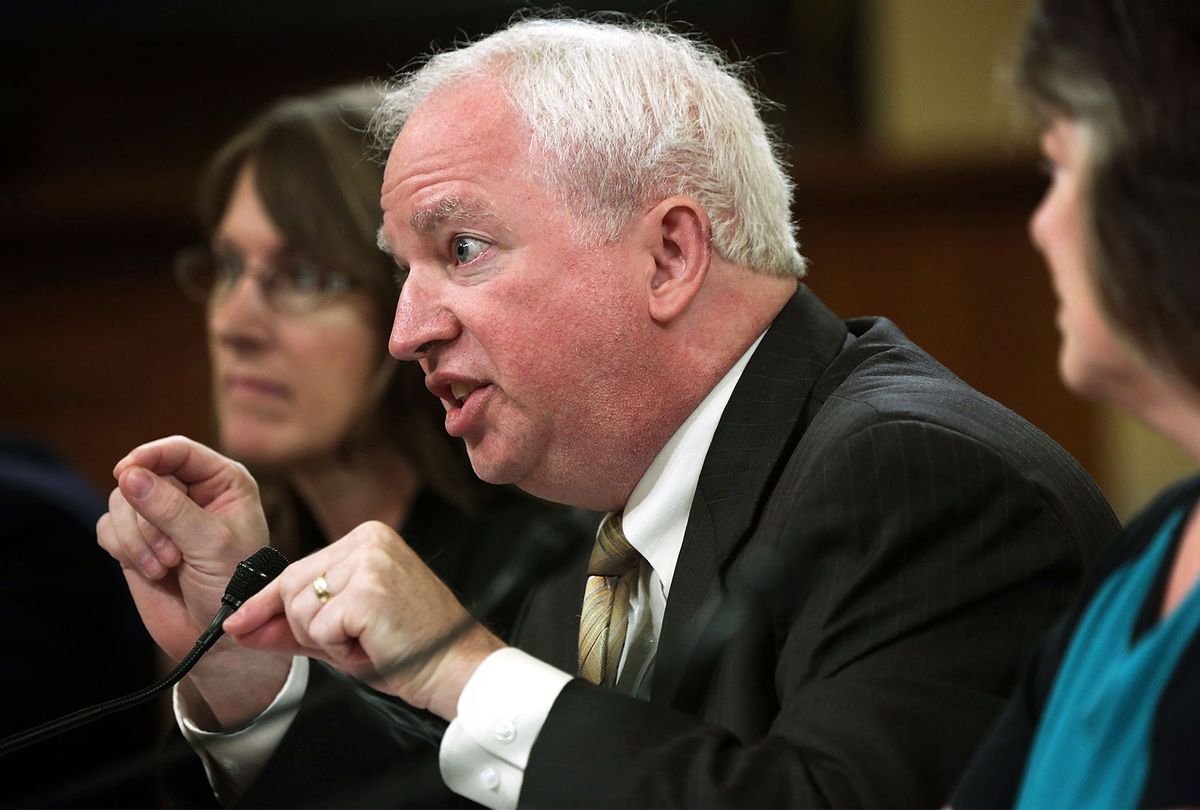On Monday, April 18, far-right attorney John C. Eastman — who is infamous for a memo outlining a plan for former President Donald Trump to overturn the 2020 presidential election results — revealed that he has asserted attorney-client privilege with 37,000 pages of e-mails that House Speaker Nancy Pelosi's select committee on January 6, 2021 has been seeking.
According to Politico's Kyle Cheney, "The January 6 select committee has objected to 'every claim' over those pages, which now sends the gargantuan dispute to U.S. District Court Judge David Carter for a case-by-case review. Eastman revealed the scope of the dispute in a status report to Carter, concluding a three-month review that Carter demanded he undertake. Since January, Eastman has been reviewing 1000 to 1500 pages per day."
Carter, in a recent ruling, was highly critical of Trump and Eastman's actions following the 2020 presidential election. The federal judge ruled that they "more likely than not" engaged in a criminal conspiracy to obstruct the joint session of Congress held on January 6, 2021, when now-President Joe Biden's Electoral College victory was certified. And Carter described efforts to overturn the election results as a "coup in search of a legal theory."
Carter, Cheney notes, "has described the select committee's work as urgent" but "must now determine how to parse these 37,000 pages" of e-mails "in time for the committee to employ them in its ongoing investigation of Trump's effort to subvert the transfer of power."
"The e-mails are all drawn from Chapman University, where Eastman was employed until shortly after January 6," Cheney explains. "The committee subpoenaed Chapman to obtain the e-mails, but Eastman sued the school and the select committee to slow the process. Carter then ordered the review that Eastman undertook."
Cheney adds, "The select committee urged Carter to prioritize documents sent from January 4 to January 7, 2021, the key period of the panel's review. That narrower review resulted in Carter's bombshell ruling about likely criminality by Trump. But now, Carter must turn to the broader review of Eastman's e-mails stretching back to November 3, 2020, the date of the presidential election."
The January 6 select committee, Cheney notes, has "raised doubts about whether Eastman was legitimately acting as Trump's lawyer prior to January 6."
"Eastman, under an order from Carter, produced a retainer agreement dated December 6, 2020," Cheney writes, "but it was unsigned. And it's not clear when it was effectuated…. Carter also ruled that Eastman did, eventually, become Trump's attorney, noting that he filed court papers on Trump's behalf in late December and communicated with top White House aides and other officials while representing himself as Trump's lawyer."
Cheney adds, "Of the 90,000 pages of e-mails subject to the select committee subpoena, about 30,000 were immediately ruled out as irrelevant mass e-mails. Eastman made no privilege claims over an additional 25,000 pages of records."
Time is of the essence for Pelosi's select committee, as Democrats may lose their majority in the U.S. House of Representatives in the 2022 midterms — and many House Republicans don't even believe the committee should exist. Pelosi has included two non-MAGA Republicans on the bipartisan committee: Rep. Liz Cheney of Wyoming and Rep. Adam Kinzinger of Illinois, but the majority of House Republicans are loyal Trumpistas and resent Cheney and Kinzinger deeply for their participation.




Shares